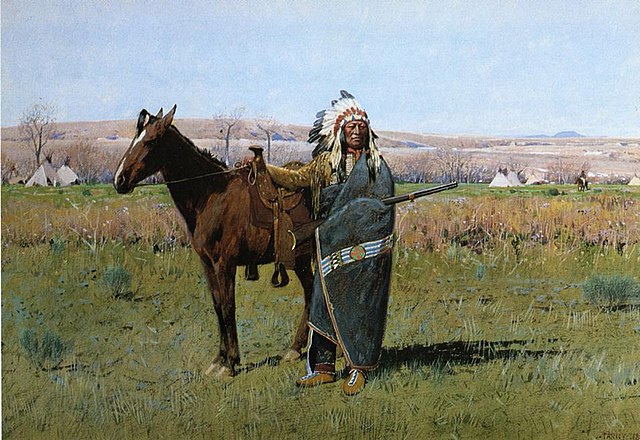The Pawnee are a Central Plains Indian tribe that historically lived in Nebraska and northern Kansas but today are based in Oklahoma. They are the federally recognized Pawnee Nation of Oklahoma, who are headquartered in Pawnee, Oklahoma. Their Pawnee language belongs to the Caddoan language family, and their name for themselves is Chatiks si chatiks or "Men of Men".
Kitkahaki George and his son Taloowayahwho, also known as William Pollock, in the mid 1890s.
Pawnee lodges near Genoa, Nebraska (1873)
Pawnee Indians migrating, by Alfred Jacob Miller
Ornamental hair comb by Bruce Caesar (Pawnee-Sac and Fox), 1984, of German silver, Oklahoma History Center
Plains Indians or Indigenous peoples of the Great Plains and Canadian Prairies are the Native American tribes and First Nation band governments who have historically lived on the Interior Plains of North America. While hunting-farming cultures have lived on the Great Plains for centuries prior to European contact, the region is known for the horse cultures that flourished from the 17th century through the late 19th century. Their historic nomadism and armed resistance to domination by the government and military forces of Canada and the United States have made the Plains Indian culture groups an archetype in literature and art for Native Americans everywhere.
Stumickosúcks of the Kainai. George Catlin, 1832
Spotted Tail of the Lakota Sioux
Bison hunt under the wolf-skin mask, George Catlin, c. 1832
Early Native American tribal territories color-coded by linguistic group








